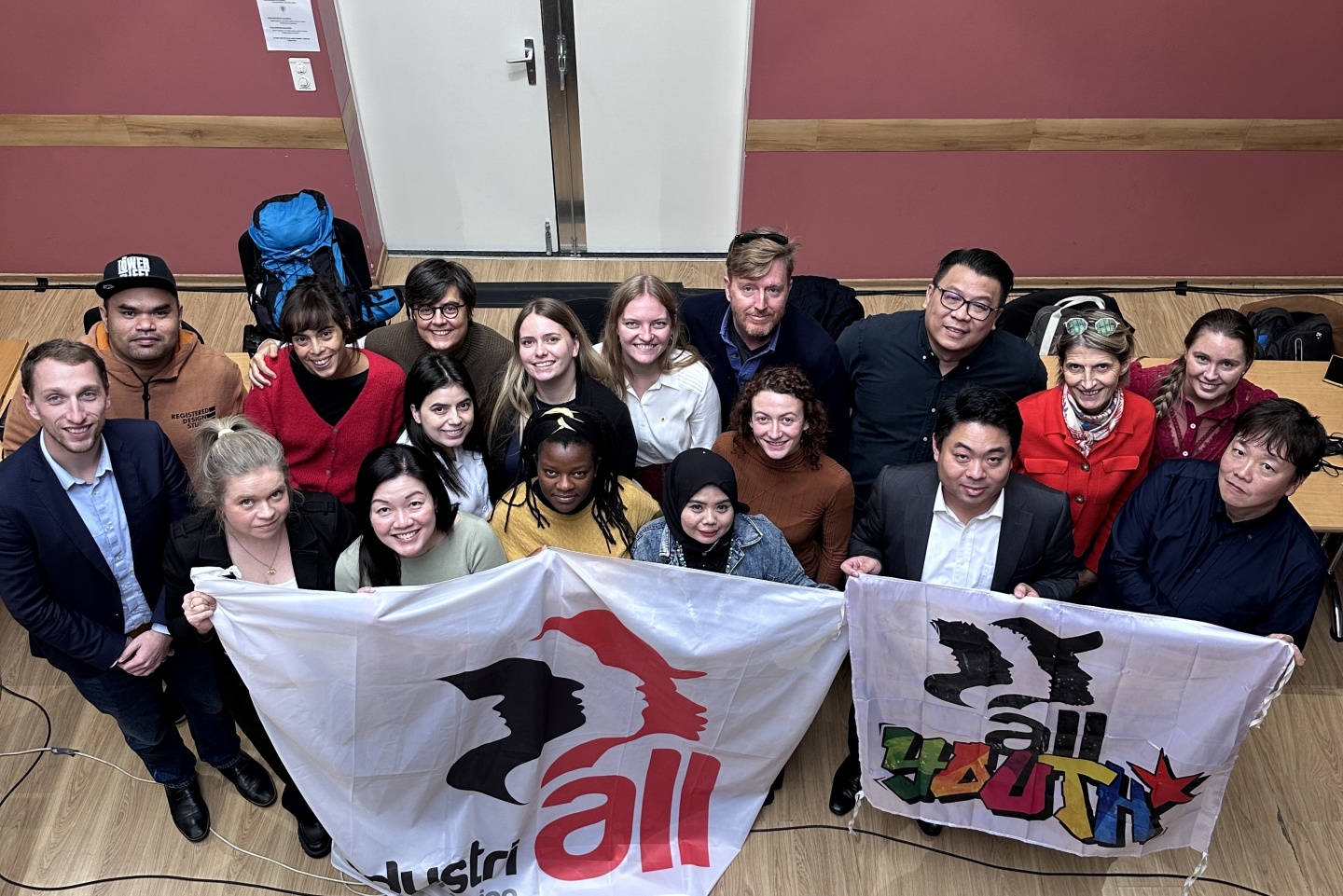11 October, 2024During October, 18 young white-collar workers and organizers from 15 unions across France, Finland, Japan, the Philippines, Indonesia, Germany, Eswatini, Singapore, and Sweden convened in Geneva. The event aimed to address the specific needs of young white-collar workers and explore ways to attract and mobilize them into trade unions and better represent them.
Young white-collar workers are often difficult to organize due to high mobility, self-negotiation tendencies, and a negative view of unions.
“The young white-collar workers are the present and the future of our unions. We need to listen to them and give them more space in our unions,”
says Corinne Schewin, IndustriALL co-chair for white- collar workers.
Panels covered workplace issues, organizing strategies, and communications, while small groups discussed ideal union models and strategic outreach.
Workers from France, the Philippines, Brazil, and Eswatini shared aspirations and concerns: Philippines: fear of union-busting. France: concerns over job security, disconnecting challenges, lack of flexibility and meaningful work. Brazil: challenges meeting employers’ high experience demands, along with inequality and discrimination concern and Eswatini: lack of jobs and job security.
Common aspirations included job creation and security, work-life balance, upskilling, and flexible workspaces for women.
“It is important to create an environment within our unions that enables young workers to participate actively and to develop union strategies that speak to them,”
says Romain Dargent, CFE-CGC Energy and IndustriALL young executive committee member.
Discussions on the ideal union for this group revealed a gap between aspirations and reality, highlighting a lack of representation, transparency, communication and young worker empowerment. Participants emphasized the need for face to face communication, early union education and a call for greater diversity within unions.
Participants noted that young white-collar workers perceive unions negatively, feeling they don’t represent society’s diversity and are often misrepresented in the media. They suggested positive communication showing trade unions as proactive actors, using social media to improve this image, emphasizing the need for concise messaging to reach young audiences effectively.
Panelists from Japan, Finland and Ghana shared strategies on organizing young white-collar workers. Training benefits for young workers and the challenge of membership fees were emerging issues. Some unions organized gaming events and offered free coffee to encourage interaction, creating spaces for awareness and education on trade unions.
A communicating with young workers session emphasized the importance of understanding audiences. Participants from Singapore and Sweden shared experiences, noting that young workers prefer face-to-face interactions and the need for collaboration with government to make unions appealing for white-collar workers. Swedish union highlighted challenges in helping workers transition from student to employee, emphasizing the importance for trade unions to make students and young white-collar workers feel safer being part of a union.
Expert organizer, Aaron Chappel, presented on strategic organizing campaigns. Participants role-played scenarios, such as initiating conversations after work and hosting lunchtime meetings.
Delegates from Ghana presented examples of their online organizing, using platforms such as WhatsApp, Facebook and Instagram. They shared the use of targeted organizing and knowing the needs of workers. They shared examples of non-targeted approaches by using flyers and catch phrases appealing to young workers. Some challenges included precarious work and difficulty organizing young workers because of the myths about unions. The use of databases in online organizing is key.
Participants from Germany, Norway and Brazil spoke of how trade unions are representing workers, common themes include benefits and the services that unions provide.
“The discussions once again demonstrated the desire of young members to become actively involved in their union and the barriers they face. Our leaders urgently need to question their persistent refusal to ensure young people can participate fully in the life of their union, when they are subject to the same conditions and obligations as their elders,”
says Sarah Flores IndustriALL youth and project officer.
IndustriALL director for white collar workers says:
“Moving forward IndustriALL will take inputs from both young white collar workers and organisers, and develop a toolbox on how to organize young white collar workers. The toolbox will include things that have been tested and what has worked. We need to listen to young white collar workers. We cannot define them, they need to do that and we must listen to them.”



